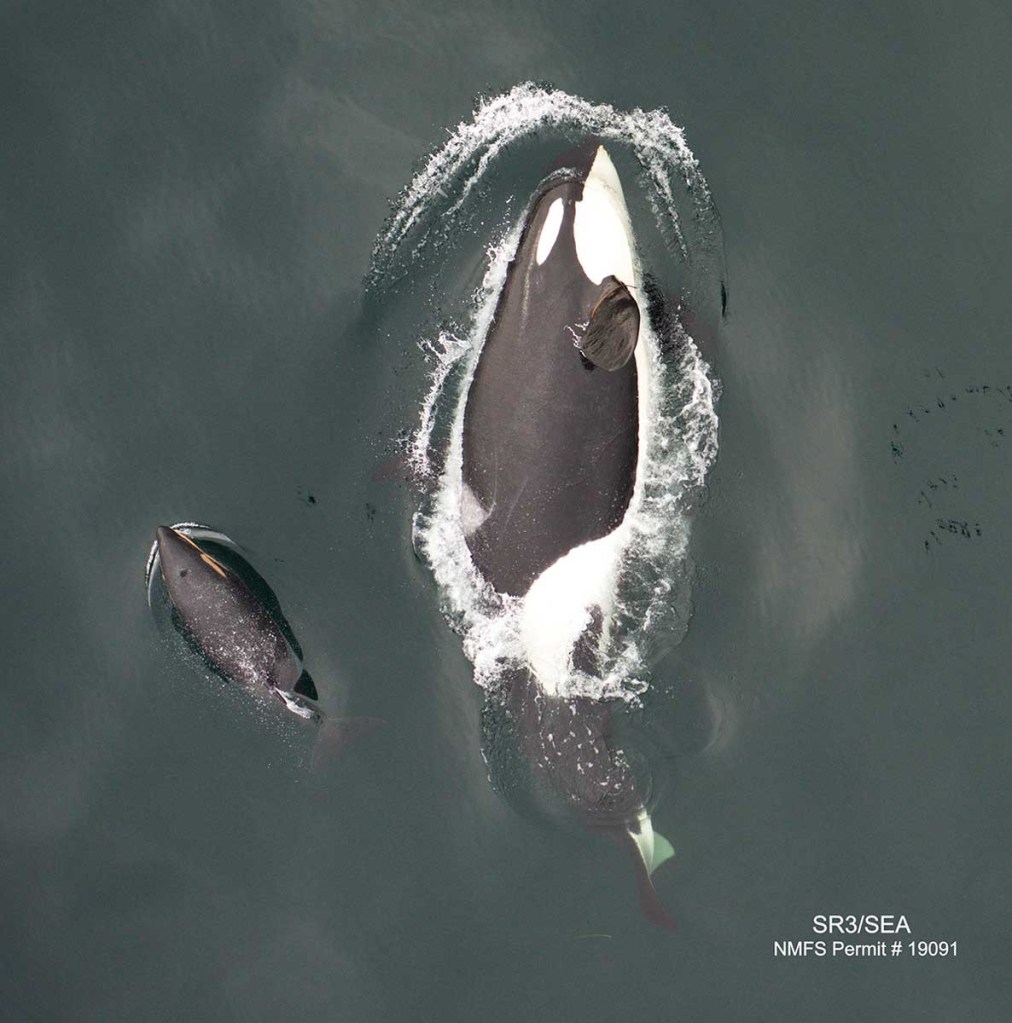Killer whale creates unlikely partnership between cities in Oklahoma, Washington
Published 12:00 pm Saturday, November 21, 2020

- An aerial shot shows Tahlequah and her new baby, currently called J57. J57 appears to be a very healthy newborn calf.
TAHLEQUAH, Oklahoma – In 2018, a southern resident killer whale along the Washington state coast gave birth to a calf that died soon afterward. Her name was Tahlequah, and she mourned her loss by carrying the calf for 17 days, capturing the attention and hearts of the public.
Two years later, Tahlequah has given birth again – this time, to a seemingly healthy calf. And that’s where a city in northeastern Oklahoma comes into play.
Trending
The successful birth has helped form a connection between the cities of Tahlequah, Oklahoma, and Des Moines, Washington. The baby whale, also known as J35, frequents the coast of Washington state near Des Moines. Also located in Des Moines is SR3, a nonprofit marine wildlife research center. Because of these synchronicities, Tahlequah Mayor Sue Catron signed a proclamation declaring a partnership between the two communities.
“I became aware of Tahlequah the whale after reading the news stories that she had lost her calf,” said Catron. “In short order, a proclamation was produced to form a partnership with Des Moines, Washington, in support of orcas and revitalizing a species nearing extinction.”
To shine a spotlight on the endangered orcas, a press conference was held Nov. 16 via Zoom, attended members of the press, the two communities, animal rights groups and many others. The goal was to announce the Oklahoma Killer Whale Project, which honors the link between Tahlequah, Oklahoma, and J35. The conference was put together by the Kirkpatrick Foundation in Oklahoma City and SR3.
“Eight years ago, we debuted our initiative to make Oklahoma the safest place for an animal to live in the country,” said Louisa McCune, executive director of the Kirkpatrick Foundation. “Connecting Oklahoma was maybe one of my best ideas ever. My father was born in Tahlequah, so I have some personal connections over there.”
Different speakers from a variety of places spoke during the online conference. SR3 staffers explained in detail what they do and the efforts they are making to help endangered aquatic species like the southern resident killer whale. Holly Fearnbach, Ph.D., marine mammal research director at SR3, spoke on the importance of the work they are doing.
“There are only 74 individual southern killer whales remaining,” said Fearnbach. “I always said they do family better than we do, which is what drew me in to researching them. They were listed in 2003 as an endangered species. I think it’s a beautiful thing to reach people who may live hundreds of miles from these whales. No matter where you live, everyone has a role to play in protecting our ocean. If we can protect it as a whole, we are not only protecting the ocean, but ourselves.”
Trending
The speakers explained issues the whales face. For instance, Fearnbach said the southern resident killer whale has a specific appetite for Chinook salmon. In the 1990s, this type of salmon began to become more scarce, causing a decline in the whale population.
The Kirkpatrick Foundation also mentioned a number of other entities that have indicated they may join the Oklahoma Killer Whale Project.
“The Oklahoma City Zoo has expressed interest in a collaboration between the media and education through their channels,” said McCune. “There are a number of different entities signing on to help. We welcome everyone to sign on to this year-long pursuit.”
During the meeting, attendees were told the city of Tahlequah and J35’s name connection has come full circle.
A dock in Washington called “Tahlequah” was named for the same Tahlequah, Oklahoma, after which the whale is named. A ferry dock named Tahlequah in Washington state served as inspiration for the naming of J35. In turn, this ferry dock was named after Tahlequah, Oklahoma, many years ago.
Other speakers sharing throughout the conference were Matther Pena, mayor of Des Moines, Washington; Ed Brocksmith, cofounder of Save the Illinois River; and Casey McLean, executive director and veterinary nurse at SR3.





